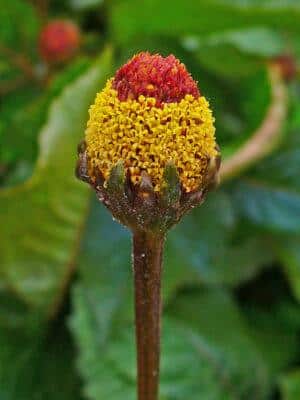|
Listen To The Article
|
I don’t know about you, but I really (really) hate going to the dentist. Unfortunately, this means that I often wait until I’ve made the problem worse with my procrastination. I know I should go regularly, but I always seem to find a reason to put it off.
You have to admire our ancestors, though. Imagine having a toothache with no dentist (or money for a dentist) in sight. How did they live with it?
Most times, people used herbs to relieve toothache pain until they could find a dentist or until they could find someone to pull the tooth! Other types of mouth pain, such as sores from ill-fitting dentures or canker sores, were made bearable through pain-relieving and healing herbs.
Although most of these remedies have been forgotten due to over-the-counter pain relievers and better dental care, there might come a time when we wish we knew what these herbs were.
Let’s take a look at the top 5 herbs that work to relieve mouth pain or a toothache.
1. Cloves
This is perhaps the oldest and best-known remedy for relieving toothache pain and helping gums to heal. My dentist actually has a little homemade concoction that his grandfather used to make to help with these problems. He won’t tell me everything that’s in it, but I can taste cloves and I must say that this stuff really worked to heal a stubborn sore on my gum!
The active ingredient, eugenol, is in the oil of the clove. In fact, many dental items you buy today contain oil of cloves. Cloves have antimicrobial compounds, as well as a numbing effect, which makes them perfect for tooth or gum pain. Crush a couple of cloves and place it where the pain is for 10 or 15 minutes.
2. Cabbage
This common food once had an uncommon use — as a dental pain reliever! When applied topically, it is said to help heal mouth sores quickly, as well as numb the pain. Cabbage leaves were softened with a rolling pin, and then rolled up like a tortilla and placed where the pain was. This very old-fashioned remedy calls for using 4 to 6 leaves a day.
3. The toothache plant (Acmella oleracea)
This little plant works so well, its medicinal use has become its name! Other names include buzz buttons or sechuan buttons. The flowers of this plant have a super-numbing effect in the mouth, even more so than cloves. If you look at the flowers, they do remind you of a tooth with a red “sore” spot in the middle! The remedy calls for using just the fresh flower and holding it on the painful area.
4. Onions
Onions seem to appear on every medicinal herb list, don’t they? Some people claim that onion juice is so effective at relieving pain that it’s better than ibuprofen. I don’t know if that is true or not, but the remedy is that you cut a large piece of onion (apparently yellow onions are best for this, as they are the strongest) and place it between the teeth, as close to the painful area as you can.
Now slowly bite the onion, but only until you feel the juice come out. The idea is to get as much of the juice from the onion as possible. So bite slowly, turn the onion piece a bit, and then repeat until the pain is gone.
5. Sage and vodka
This old remedy came to America via German immigrants. Since sage has antibiotic and anti-inflammatory compounds, this remedy makes sense. Two teaspoons of dried crushed sage leaves were put in a small glass container, along with one teaspoon of salt and about one-fourth cup of vodka. This mixture should sit for five minutes before using. Mix this solution gently, and then take a sip and swish it around, biting the mushy sage leaves. Then spit. Don’t drink this or you will most likely end up vomiting. Repeat two or three times, and then throw out any leftover. This needs to be repeated three times a day with a fresh mixture, as it supposedly goes “stale” after just 15 to 20 minutes.
What all-natural methods do you use to relieve mouth and tooth pain? Share your tips in the section below:
 Off The Grid News Better Ideas For Off The Grid Living
Off The Grid News Better Ideas For Off The Grid Living





